Showing 11-20 of 36 results
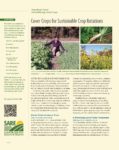
Cover Crops for Sustainable Crop Rotations
Cover crops are one of the best ways to improve soil health, reduce off-farm inputs and protect natural resources. Find a wealth of educational materials developed out of decades of SARE-funded cover crop research.
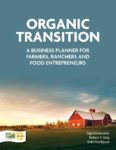
Organic Transition
The profit potential of transitioning to organic production—along with other rewards—has farmers, ranchers and food business owners across the country considering the switch. But successfully managing your business through the multi-year transition process requires careful planning. Use Organic Transition: A Business Planner for Farmers, Ranchers and Food Entrepreneurs to develop an actionable business transition plan that is suitable for yourself, your management team or a lender.

FARMDATA
FARMDATA is an online system for tracking and reporting crop production data, particularly for organic vegetable growers. The system can be used for keeping records on seeding, transplanting, harvest, cover crops, compost, fertilization, irrigation, pest scouting and spraying activities, packing, distribution and customer invoicing. FARMDATA uses smart forms that help with calculations and remember key data.
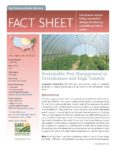
Sustainable Pest Management in Greenhouses and High Tunnels
From 2007 to 2009, Cornell researchers in New York used a SARE grant to study the efficacy of biological insect control in minimally heated greenhouses and high tunnels or hoop houses. This fact sheet reports the results and provides detailed advice on how growers can use natural enemies to manage insect pests in minimally heated greenhouses and unheated high tunnels.

The Small Ruminant Toolbox
This Small Ruminant Toolbox is a large collection of publications, presentations and other resources that will be helpful to small ruminant producers and educators.
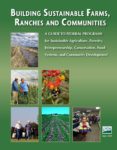
Building Sustainable Farms, Ranches and Communities
This guide lists funding opportunities offered by federal programs, and is indispensable for anyone seeking government help to foster their innovative enterprise in forestry and agriculture.
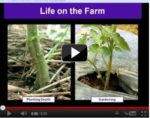
Grafting for Disease Management in Organic Tomato Production
In this webinar, learn about tomato grafting and how it can be used to manage diseases in organic open-field and high tunnel farming systems.
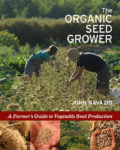
The Organic Seed Grower
The Organic Seed Grower is a comprehensive manual for the serious vegetable grower who is interested in growing high-quality seeds using organic farming practices.
Organic Seed, Soils and Sustainable Business
This project provided agricultural professionals with more knowledge of organic seed, soil management and sustainable business practices. From the trainings, a webinar and tutorial were developed.
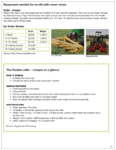
Cover Crops and No-Till Management for Organic Systems
This Rodale Institute fact sheet reviews the use of cover crops and no-till in organic systems, including selection, establishment and mechanical termination of cover crops; crop rotations; and energy and production budgets.